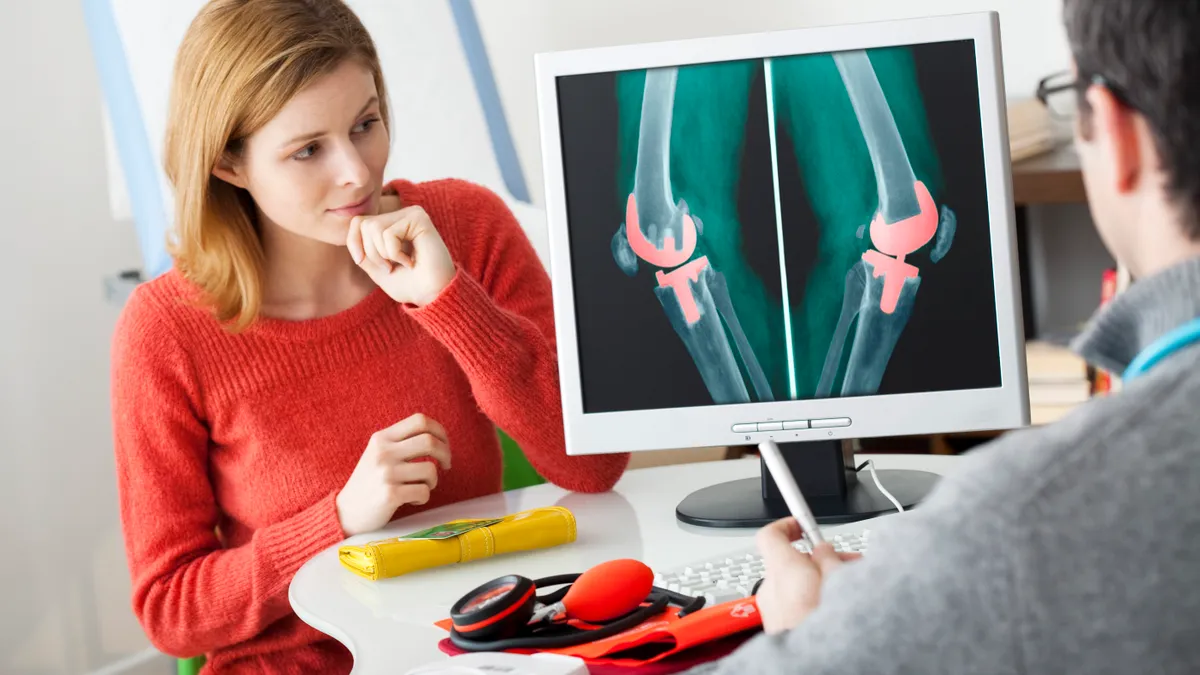Dive Brief:
-
Zimmer Biomet has received 510(k) clearance for a knee replacement system it thinks will expand use of its Persona product line, the company announced this week.
-
The FDA-cleared device, Persona Revision, is designed to enable surgeons to tailor treatment strategies to the anatomies of individual patients.
-
Zimmer disclosed the clearance alongside news that its surgical knee robot has been used for the first time.
Dive Insight:
Zimmer is seeking to cement its position in the knee surgery market by building a comprehensive product portfolio, from implants used to replace the joint through to robotic systems that assist with the procedures.
The FDA-cleared Persona Revision implant is a key part of this strategy. Talking to investors in July, Zimmer CEO Bryan Hanson outlined the significance of the device to the company.
"[Persona Revision] is an important product for us," Hanson said. "There are folks that are sitting on the sidelines that would like to use Persona but are waiting for a Revision system. So ... it's also getting some of the folks on the sidelines into the Persona game."
It may be some months before the clearance starts to translate into meaningful sales, though. In July, Hanson said the plan was to initiate a limited launch of the system around the end of 2018. That will give Zimmer a chance to "learn as much as we can," Hanson said, while building its capabilities and supply chain ahead of an anticipated full-scale rollout around the middle of next year.
By then, Zimmer's Rosa Knee Robot may have advanced, too. The device is pending 510(k) review in the U.S. but has already been used in Australia, where a surgeon performed a total knee arthroplasty with the system. After the procedure, the first featuring the robot, the surgeon talked up the system's ability to help personalize surgical plans based on a patient's bone and soft tissue anatomy.
Zimmer bought its way into the robot-assisted surgery field when it paid around $132 million to buy France's Medtech SA in 2016. A neurosurgical device acquired in the takeover is already on the market, and versions of the technology tailored to procedures of the knee and spine are closing in on clearances.
Hanson has been cagey about how Zimmer will differentiate the knee and spine devices from rival products, such as those sold by Mazor Robotics and Stryker, to avoid "speaking too much about telegraphing our talk track." The CEO has provided some pointers, though.
"The others may have a robotic system, but they certainly don't have the Persona Knee system that we have with the personalized capability that that brings to the table," Hanson said. "One of the primary things we concentrate on is being able to use [a] robotic system without dramatically disrupting the surgical flow, which is a big deal."
With Zimmer awaiting clearance of the robots before embarking on a limited launch of the Rosa devices, the company's pitch to surgeons and the impact it has on the market will become clearer in the months and years to come.











